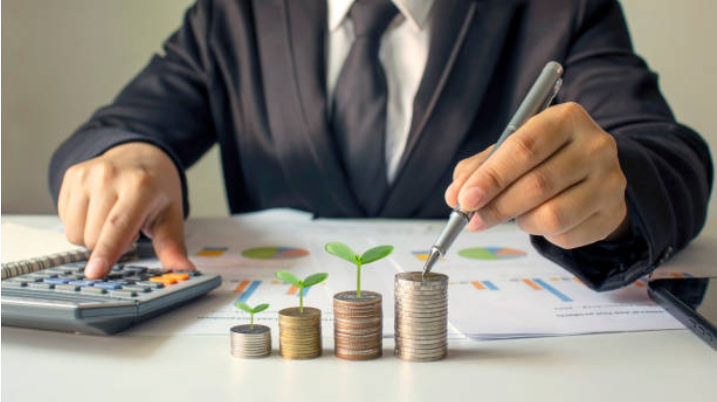Having control over finances is one of the biggest challenges faced by many. With a series of financial obligations, growing debts, and the constant pressure to “invest for the future,” it can be hard to know where to begin. This article offers a clear and practical guide to help you eliminate debt and start building a stable and secure financial future. The content builds upon the plan presented in the video, offering additional tips and examples to help you apply these ideas in the real world.
Introduction
Getting out of debt is the first step towards achieving financial freedom. In this guide, you will learn the importance of getting rid of debts that drain your resources and how it paves the way for investments that grow your net worth. Here, you'll find proven strategies for prioritizing your finances, eliminating debt quickly, and creating an emergency fund that will ensure your financial security.
1. Start with an Emergency Fund
Before anything else, it is crucial to have an emergency fund. This fund is your first step towards financial freedom and should cover unexpected emergencies that may arise, such as car repairs or medical expenses. The initial recommendation is to accumulate at least $500 to $1,000 to cover immediate expenses, then work to expand it gradually.
Why is an Emergency Fund Important?
An emergency fund allows you to maintain financial control in unforeseen situations, preventing you from needing to take on unnecessary debt. Without it, you may end up using credit cards or taking out new loans, which only perpetuates the debt cycle.
2. Pay Your Debts As Quickly As Possible
After securing your emergency fund, the next step is to eliminate your debts. Debts like student loans, credit card debts, car loans, and other commitments on depreciating assets should be paid off as soon as possible. The sooner you get rid of these debts, the faster you can redirect your resources towards investments that generate returns.
Why is Paying Off Debt a Priority?
Investing while still in significant debt can create a false sense of security. Imagine having $50,000 invested, but also $50,000 in debt. Your net worth is essentially zero. By eliminating your debts, you effectively increase your net worth, freeing up capital to be invested in assets that actually appreciate in value.
Practical Tip: Focus on paying off debts with the highest interest rates first, such as credit cards, as these debts tend to grow rapidly if not addressed.
3. Continue Investing While Paying Off Debt
Although the priority is to pay your debts, you should still continue to invest a small percentage of your earnings. Ideally, between 3% to 5% of your income should be invested in a retirement fund, especially if your employer offers a matching program.
The Power of Consistent Investing
Investing regularly, even in small amounts, is essential to familiarize yourself with the financial market and take advantage of compound interest. The important thing is not to try to “time the market,” but to “be in the market” consistently, learning about how stocks, ETFs, and other investments work.
4. Establish a More Robust Emergency Fund
Once your debts are paid off, you should increase your emergency fund to cover 3 to 6 months of your essential expenses. This provides additional protection in case you lose your source of income or face a major emergency.
How to Determine the Right Amount
The ideal amount for your emergency fund depends on the stability of your employment and your risk profile. If you have a stable job, such as a teacher or government employee, a 3-month fund may suffice. However, if you work in a more volatile field, like sales or the private sector, consider accumulating between 6 to 7 months of expenses.
5. Focus on Investing After Eliminating Debt
Now that you are debt-free and have a solid emergency fund, you can start investing more aggressively. This is the time to expand your investments in stocks, index funds, real estate, and other assets with growing value.
Common Mistakes When Investing Too Early
Many people make the mistake of starting to invest before eliminating their debts. However, accumulating unpaid debts can sabotage any returns you have on your investments, creating a cycle of financial frustration. The key to success is to ensure your financial foundation is solid before venturing into large investments.
Practical Tip: When you start investing, diversify your portfolio and make a thorough analysis of the assets you choose, such as high-growth technology stocks or real estate.
Conclusion
Getting out of debt and building a solid financial foundation is a challenging journey, but essential for achieving financial freedom. By following a strategic plan that prioritizes debt elimination, building an emergency fund, and diversifying investments, you will be on your way to ensuring a more stable and prosperous future.
Remember, financial control is personal and may require adjustments along the way, but with discipline and planning, anyone can achieve financial peace of mind.
FAQ
1. How much should I have in my emergency fund?
It is recommended to accumulate between 3 to 6 months of your essential expenses, depending on the stability of your job.
2. Should I stop investing while I'm paying off debt?
Not necessarily. Continue to invest a small percentage of your income (3% to 5%), especially if your employer offers a contribution match.
3. Which debts should I pay off first?
Focus on the debts with the highest interest rates, such as credit cards and car loans.
4. When should I start investing aggressively?
Only after you have eliminated your debts and built a robust emergency fund.
5. How much should I invest in the financial market?
Start with a percentage between 10% to 15% of your income after ensuring your financial foundation is secure.


